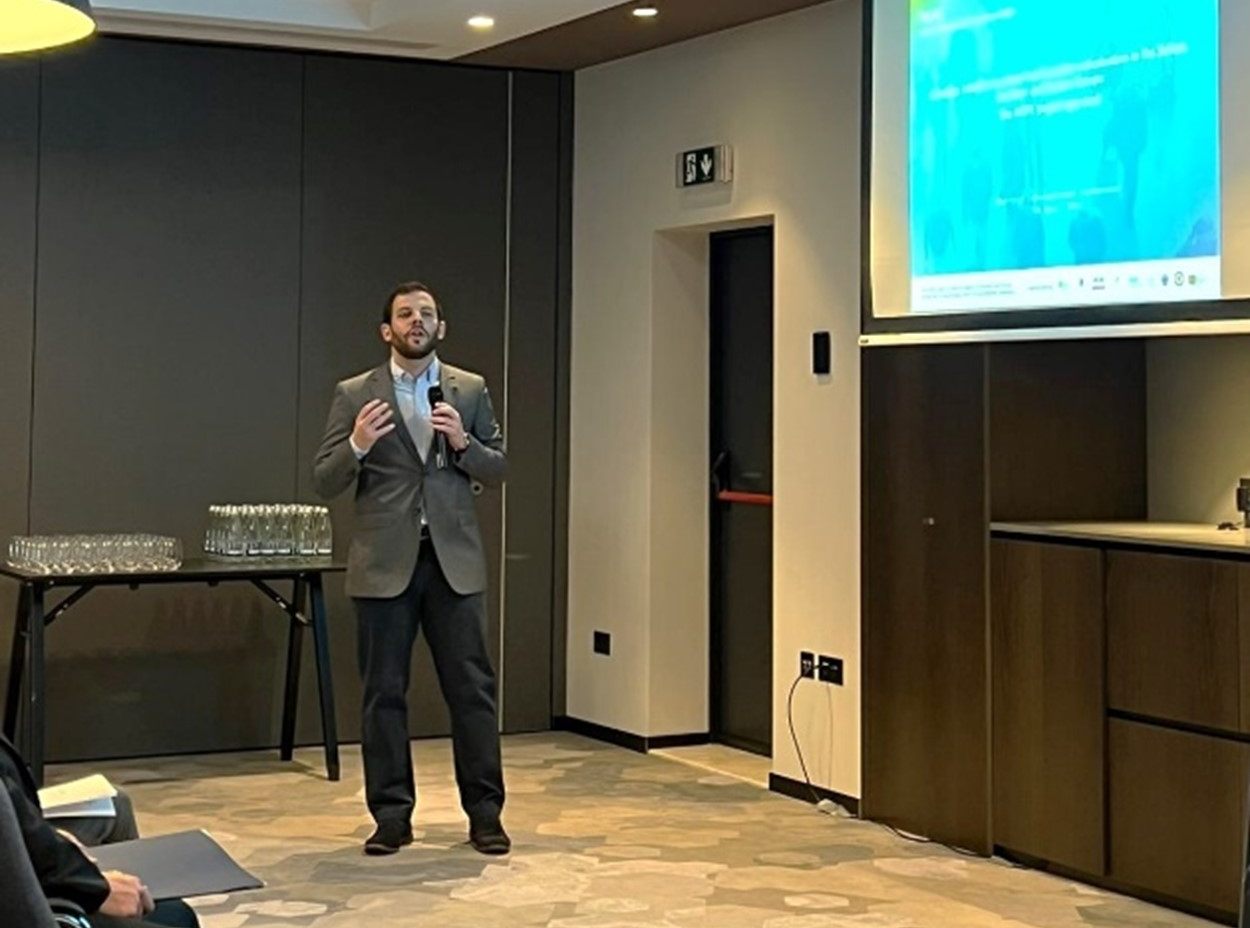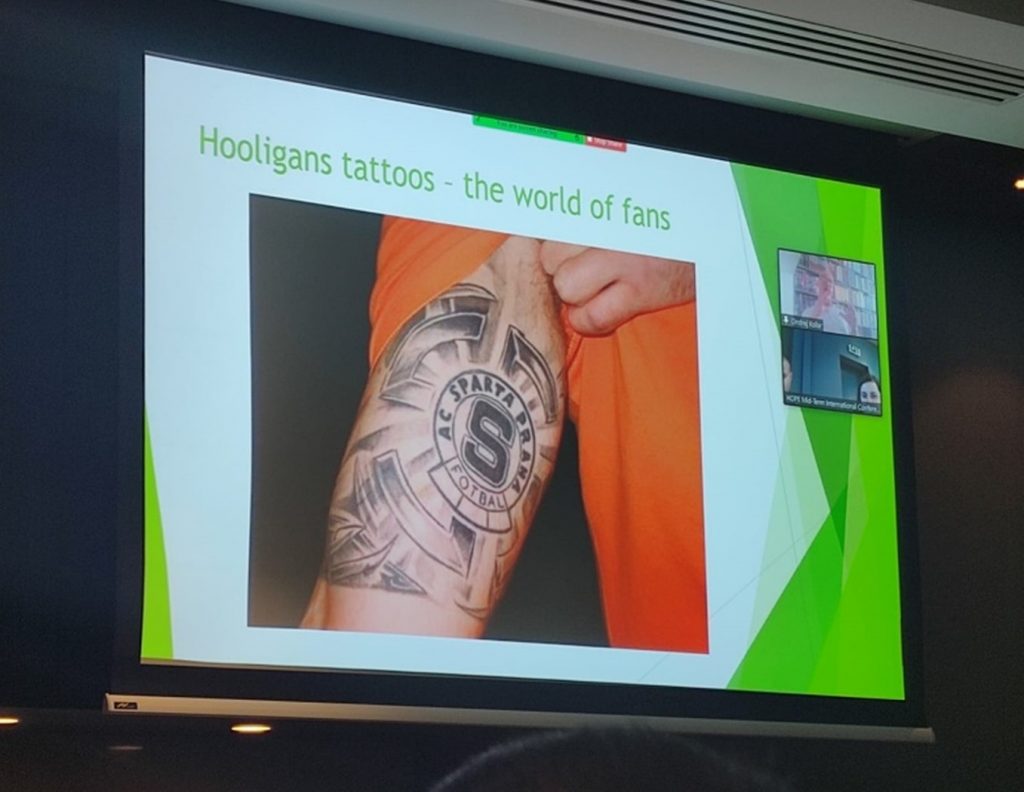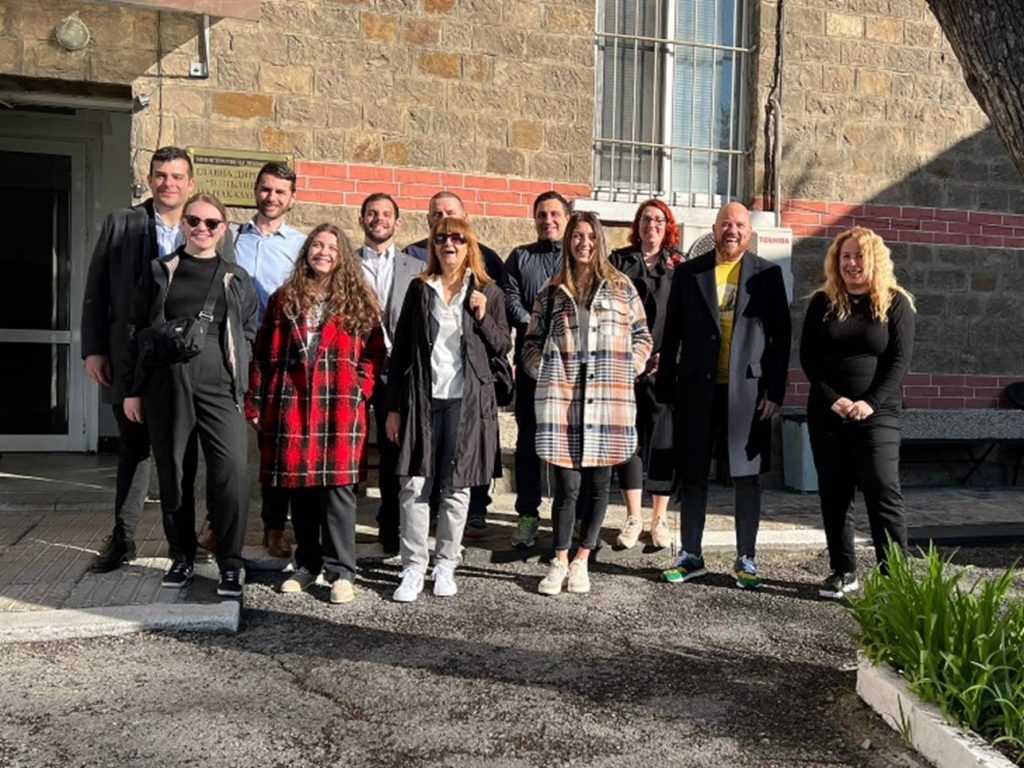Dozens of experts on violent extremism prevention and countering (P/CVE) from fourteen countries and multi-lateral organisations gathered to share expert insights. The initiative marks the strengthening of a network on holistic radicalisation prevention.
The HOPE Radicalisation Network continues its mission to deepen and disseminate a pool of knowledge and training resources to practitioners. The hub has been developed in the scope of the Holistic Radicalisation Prevention Initiative (HOPE Project).
The first international in-person conference of the HOPE project included key stakeholders from the Council of Europe, United Nations Office on Drugs and Crime, General Directorates of Prison and Probation, civil society/community representatives, and academic researchers.
The event provided a valuable overview of the current findings, needs, and future steps for P/CVE, focusing on the Balkan, Southern, and Eastern European contexts.

The conference hosted several specialised and insightful presentations from various experts. These important interventions covered topics ranging from the regional root causes of radicalisation to the rehabilitation and reintegration of violent extremist offenders.
Dorin Muresan, a Senior Expert at IPS_Innovative Prison Systems (the project promotor), highlighted the importance of regional specificities on the causes of radicalisation in local P/CVE strategies.
After a briefing on these specificities, the expert shared some guidelines on how to improve P/CVE efforts, mainly through de-centralisation.
Asking practitioners to extend their focus from VETOs to other vulnerable individuals, Ondřej Kolář reinforced a preventive focus. The expert in prison radicalisation from the Police Academy of the Czech Republic explained the prison radicalisation process, focusing on the Czechia’s experience. He also accentuated the need for prison staff training to overcome challenges faced with radicalisation in prison.

To provide a complete account of the P/CVE possibilities, Luisa Ravagnani, RAN Expert and renowned researcher from the University of Brescia, provided an appealing presentation about the role of probation officers and community practitioners on extremist offenders under supervision. She highlighted the continuity in P/CVE efforts as a way to overcome the challenges of reintegration. The RAN expert shared recommendations for future improvements, emphasising the need to create a multi-agency approach.
Lastly, Torben Adams, Coordinator of the UNODC Foreign Terrorist Fighters Detention Programme, further deepened the topic of rehabilitation with an overview of UNODC’s programme experience. Staff training and multi-agency cooperation were highlighted, as facilitators of the rehabilitation process of extremists and foreign fighters.
The HOPE Mid-Term International Conference was also an opportunity to present the European Survey and Needs Assessment Outcomes that the project recently developed. Josep García Coll from FUNDEA (Euro-Arab Foundation for Higher Studies) and Matteo Pugliese from Agenfor presented the main challenges and difficulties faced by P/CVE professionals. Once again, staff training has been identified as a critical need.

Ivaylo Yordanov, Director General of the Bulgarian General Directorate “Execution of Sentences”, and Emil Dechev, Bulgarian Deputy Minister of Justice, were present and gave their welcoming speeches opening the event.
An integral part of the conference was a field trip to the Central Prison of Sofia (Bulgaria), to promote networking between different stakeholders and materialise the project topics. The visit contributed to deepening HOPE Network’s understanding and sharing of experiences on prison management and inmates’ placement.
The Mid-term International Conference of the HOPE project was entitled “Preventing and countering violent extremism in the Balkan, Southern, and Eastern European region: Current needs and future steps” and took place in Sofia, Bulgaria, on the 7th and 8th of April, 2022. This event was built upon the Transnational Thematic Workshops already held within the scope of the project and came to solidify the HOPE learning hub on radicalisation and empower even more relevant professionals in the area.
The HOPE Radicalisation Network provides more information about the HOPE Mid-Term International Conference including a detailed overview of its presentations.
By joining HOPE’s network, members can stay abreast of all project initiatives access hundreds of relevant resources and network with more than sixty P/CVE experts and organisations worldwide.
HOPE is led by IPS_Innovative Prison Systems (Portugal) in partnership with organisations from several countries, namely the University College of Norwegian Correctional Service (Norway), Agenfor International Foundation (Italy), the Euro-Arab Foundation for Higher Studies (Spain), the Bulgarian Association for Policy Evaluation (Bulgaria), the Bulgarian General Directorate “Execution of Sentences” (Bulgaria), the Bucharest-Jilava Penitentiary (Romania), the Helsinki Committee for Human Rights in Serbia (Serbia) and the Slovenian Probation Administration (Slovenia).
For more information about the HOPE project and its Network, go to www.hope-radproject.eu.
